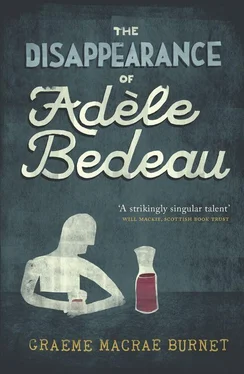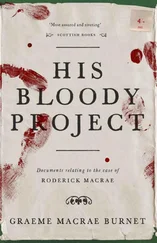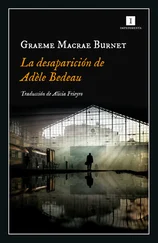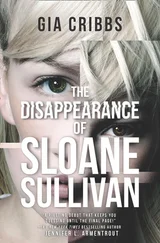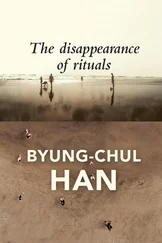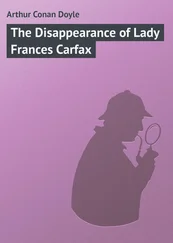‘So,’ Gorski prompted, ‘do you want to tell me what happened?’
Manfred told him the story from the beginning. Gorski listened impassively, his gaze fixed on the trees on the opposite side of the clearing. Now and again he lit a cigarette. Manfred felt quite calm as he described what had happened. He even enjoyed recalling some of the details of his meetings with Juliette, of his feelings as he had returned from the woods each evening. He faltered only when it came to the killing itself. He turned his head away from Gorski as he described pulling the rug from beneath Juliette’s body and carefully gathering up their belongings. From the corner of his eye he could see Gorski nodding his head slightly, as if what he said made perfect sense. When Manfred had finished, he said nothing. The woodpigeon continued to coo in the trees.
Eventually Gorski stood up. ‘Let’s go,’ he said. He stretched out his hand as if to shepherd Manfred in the direction of the car.
Manfred followed him back through the clearing to the path. He felt quite calm. They drove back to Saint-Louis in silence. At certain points the Rhine loomed into view, its brown water as slow-moving and sluggish as mud. Manfred expected Gorski to take him directly to the police station, but he drove past it and pulled up further along Rue de Mulhouse outside his apartment. There was nobody about. Manfred looked at him.
‘Aren’t you getting out?’ said Gorski.
Manfred was confused. ‘Am I not to be arrested?’
Gorski shook his head slowly. ‘We’ll talk again tomorrow. I’d like you to tell me the truth about Adèle Bedeau.’
He leaned over and pushed open the passenger door. The hair on the back of his neck was neatly trimmed. Manfred got out.
‘Don’t go anywhere,’ said Gorski.
Manfred stood on the pavement and watched as he made a slow turn and headed back towards the police station. He stood there on the pavement for some time. The man from the laundry room passed with his terrier, pausing for a few moments on the verge as the dog snuffled in some leaves. He did not appear to recognise Manfred.
GORSKI PARKED IN RUE DES TROIS ROIS. The florist greeted him as cheerfully as ever. The weighty scent of flowers reminded him of the church. Perhaps it was the funeral that had made him come here. His own father’s funeral had attracted only a handful of people. Ribéry had attended and sat discreetly at the back of the chapel. A few of his father’s cronies from the Restaurant de la Cloche had scattered themselves among the pews behind Gorski and his mother. None of M. Gorski’s customers had come.
Gorski bought a little bouquet of lilies. Mme Beck tried to refuse his money, but he insisted.
‘I took a little soup up earlier,’ she said.
‘I’m very grateful,’ said Gorski.
He took the stairs up to the apartment. He knocked lightly on the door, before pushing it open. It was never locked. His mother was asleep in her armchair. She looked very peaceful and Gorski thought about leaving without disturbing her. He found a vase in the old darkwood sideboard and went into the kitchen to arrange the flowers. When he returned his mother was awake.
‘Hello, Georges, I wasn’t expecting you.’ She smiled weakly at him.
‘I didn’t mean to wake you,’ he said.
‘I was just resting my eyes.’
‘I brought you some flowers.’
‘So I see. You should be buying flowers for your wife, not for me,’ she said. ‘But thank you. They’re beautiful.’
She struggled out of her chair and hobbled into the kitchen. She did not like to be helped. Gorski sat down at the table. He always sat in the same place. Mme Gorski returned some minutes later with a tray. Gorski poured out the tea. They sat in silence for a few minutes. It was very quiet in the little apartment.
Mme Gorski asked about Clémence.
‘She’s good,’ said Gorski. ‘Doing well at school.’
‘And your wife?’
Mme Gorski never referred to Céline by name.
‘Good,’ said Gorski. ‘Busy with the shop.’
Céline rarely visited and when she did she made little effort to conceal her disdain for the little apartment, with its old-fashioned furnishings and decor. Gorski always felt ashamed of her behaviour. M. Gorski’s chair was still in its place between them. Gorski could see the old man sitting there, his pipes arranged on the little side-table, newspaper draped over the arm of the chair.
‘You remember the murder of the young girl in the woods?’
He was not sure what made him say it. He never spoke to his mother about his work.
‘Of course,’ she said. ‘What was her name?’
‘Juliette Hurel.’
‘Yes,’ she said. ‘I remember it well.’ She kept her eyes fixed on the window.
‘We finally got the guy that did it,’ he said.
Mme Gorski nodded almost imperceptibly. ‘Your father would have been pleased,’ she said.
Gorski swallowed hard and nodded. There was a bitter taste in the back of his throat. He let his breath out slowly. Then he got up and carried the tea things back to the kitchen.
‘I’d better go,’ he said.
He kissed his mother on the cheek. She gripped his hand for a moment.
‘Bring Clémence round some time. I’d like to see her.’
‘Yes, I will,’ said Gorski. ‘Soon.’
He had no desire to return to the police station. Gorski imagined how a cop like Lambert would celebrate the resolution of a twenty-year-old case, surrounded by admiring colleagues. Probably they would take over an entire bar and carouse into the night, a few favoured journalists hanging on the detective’s every word. Lambert would not be troubled by a bad conscience about a tramp who had been quite content to spend his final years with a roof over his head.
Instead, Gorski took refuge in Le Pot. The bar was busy with post-work drinkers, unconsciously observing the unwritten law which dictated that workers stood at the counter while clerical and professional men occupied the tables. Gorski took what was becoming his usual seat and gestured to the proprietor that he would take a beer. The former teacher was at his place beneath the high window, a glass of white wine on the table in front of him. At the table in the corner were three youths, around twenty years old. They were fresh-faced, bourgeois boys clearly revelling in the rebelliousness of drinking in such a dive. Yves brought his beer. Gorski did not know if he knew he was a cop. If he did, he gave no sign of doing so. Bar owners did not welcome the patronage of policemen. The presence of a cop made the other customers uneasy, no matter how law-abiding they were. Gorski downed his beer in a couple of swallows and signalled to the proprietor to bring another.
If Gorski felt any satisfaction at the resolution of the Juliette Hurel case, it was of a melancholy kind. Had he been more competent, the case would have been resolved the first time round. He had been face to face with the guilty party and suspected nothing. And now, even if it were possible to bring charges against Manfred Baumann, it would do nothing for Gorski’s reputation. In any case, the authorities would not consent to granting a posthumous pardon to Malou, and Baumann’s confession would never be deemed admissible. Any lawyer worth his salt would see to that. And what would be gained by prosecuting Baumann? He was not a murderer in any meaningful sense. In the eyes of the law he was responsible for the death of Juliette Hurel, but he had not set out to kill her. In some ways, he had suffered the consequences of his actions as much as anyone.
Thus the conclusion of the case must remain a private matter. Gorski could not even go home to Céline and tell her that he had finally solved the murder that had blighted the early years of their marriage. Since the conviction of Malou he had kept his thoughts about the matter to himself. Céline had found his fixation with the case distasteful and the knowledge that he had conspired in the conviction of an innocent man shamed him. It was better all round to keep up the pretence that the case was closed.
Читать дальше
